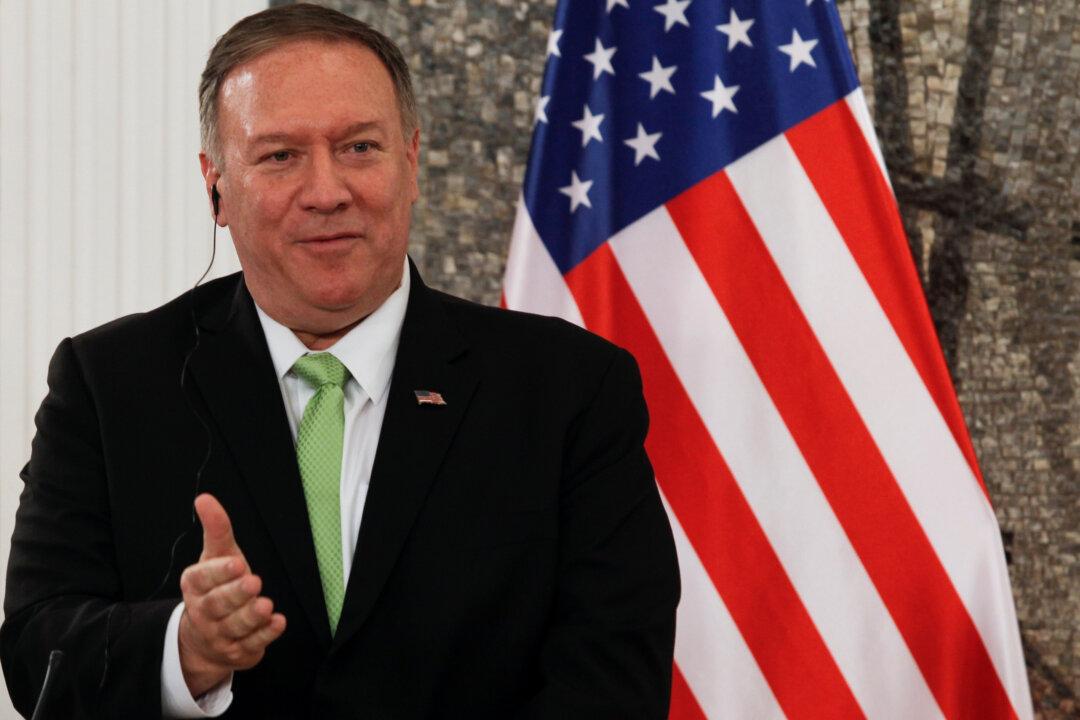OHRID, North Macedonia—U.S. Secretary of State Mike Pompeo visited Montenegro and North Macedonia on Oct. 4 and warned Balkan leaders of possible risks from Chinese investment in technology and big infrastructure projects.
“As I have done elsewhere in my travels in Europe, I also warned of the risks of Chinese investments in sensitive technologies and China’s bribe-heavy strategy to secure infrastructure deals,” Pompeo said after meeting North Macedonian top officials in the southern town of Ohrid.





